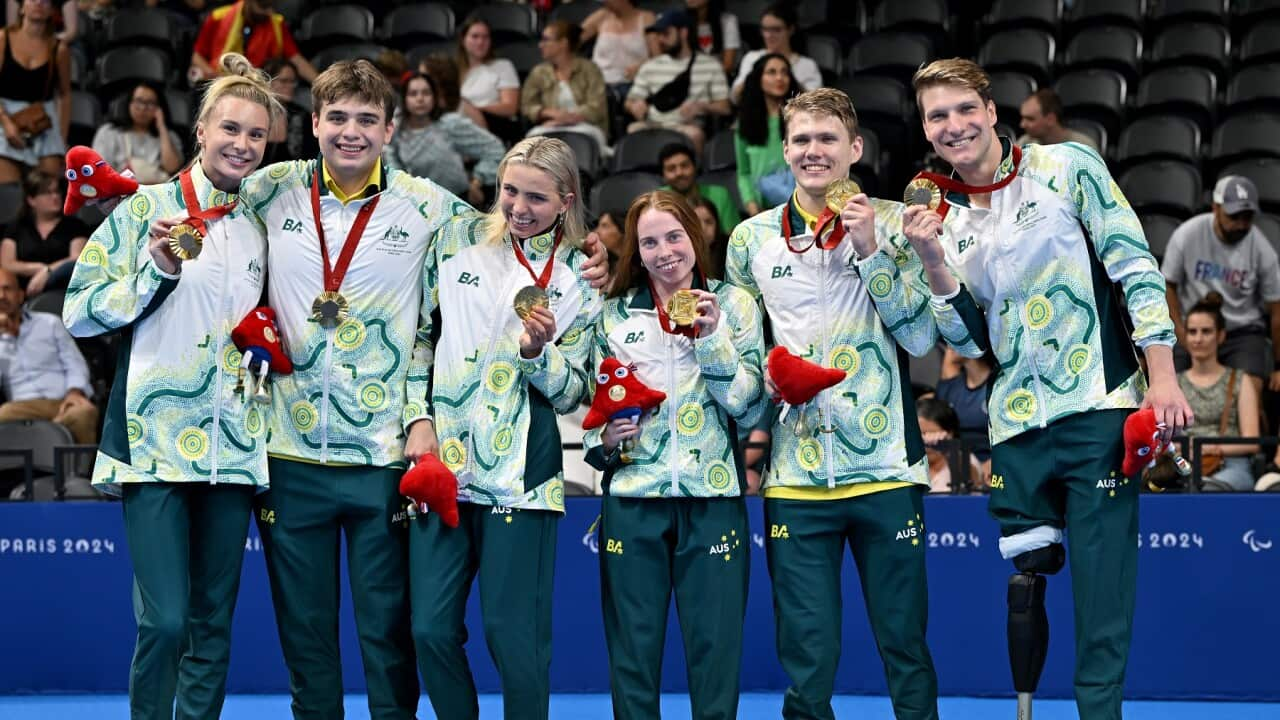TRANSCRIPT
Australia celebrates the return of the Olympic and Paralympic athletes, but there are urgent calls to shift the conversation to invest in local athletes with disabilities.
It follows recent media reports highlighting the country's lowest Paralympic medal ranking in 36 years.
Australia didn't move from its ninth position on the official medal tally.
The 1988 Paralympic Games in Seoul was the last time Australia ranked this low - at 10th place.
Dane Cross is the Chief Operating Officer of Sporting Wheelies.
They focus on leading community-based programs that support long-term participation and pathways in sport for people living with disabilities.
He commends the achievements of the Paralympic athletes, but says more needs to be done for grassroots programs like his.
"What that’s a reflection of I believe is a mis-investment of funds in terms of mainstream sport being funded to deliver an inclusion in programs. However Paris sports and the level of participation in Paris sport within those mainstream sports forms just a small focus or a small segment of them or their market whereas organisations like ours at Sporting Wheelies, disability is our primary focus. We have a full focus on Paris sport, rehabilitation, and active recreation."
Dane himself lives with a disability - he has spinal cord damage after an accident in 2001 while he was playing touch football.
Dane Cross says other organisations similar to his across the country have missed out.
His organisation advocates for investment in grassroots sporting programs that provide ongoing opportunities for people with disabilities to engage in sport.
"It’s the grassroots that have missed out. There are a lot of effort and resources being pumped into high performance however if you start at the grassroots you create that pathway, that experience, that skill development that leads to high performance, and that's what's missing."
Dr Geoff Dickson is the Director of Centre for Sport and Social Impact at La Trobe University.
He speaks about the low medal tally following recent media reports highlighting Australia’s lowest Paralympic medal ranking in 36 years.
"That’s certainly given a rise to - what I would call - a legitimate conversation about Australia’s performance at the Paralympics. For me it brings together at least two issues. One is that we perform so well in what I call an able body defence at the Olympic games, and Australia would like to think that we provide at least a reasonable to good level of support to people with a disability. And it’s tough to reconcile how we can feature so prominently at the Olympic Games and yet relatively speaking, struggle to at least match that level at the Paralympics."
Mr Cross focuses on fostering a culture that embraces difference and celebrates diversity.
"There’s a lack of collaboration between mainstream sport, between peak sporting organisations and representative bodies. We just need to get together in the room and work out how to resolve this issue and how to create more effective pathways from grassroots through to high performance, as well as opportunities."
Dr Dickson talks about the government's role in shaping future athletes.
"Prior to the 2024 Paralympics, the Australian government announced a significant increase in funding for Australia’s Paralympic programs. In essence they announced $55-million dollars in additional fundings, which more or less equates to the doubling of the amount of money that the federal government invest in Paralympic sports."
Dr Dickson believes Australia would have been in a better place had appropriate funding been allocated sooner.
"What’s noticeable about this is that the announcement was in July, a few months prior to the Paris Paralympics and therefore not necessarily a reaction to the relatively poor performance."
He says one of the problem is that people in general only take an interest in the Paralympics 14 days every four years.
He highlights the importance of normalising participation for people with a disability, and to create an inclusive culture.
"The good news for the Paralympic community and indeed the wider Australian community is that the Paralympic movement in Australia has essentially doubled their fundings in recent months. That of course was too late to translate into any sort of meaningful Paris 2024 but the hope is that for 2028 and certainly by Brisbane 2032 that Australia will once again become an influential player in the world of Paralympic sport."
Dane Cross from Sporting Wheelies says more people need to be given more opportunity to achieve the government's target for when they bid for the 2032 Olympics.
"Its all about more more, more but it really is aimed at achieving the government target or the government promise when they bid for the Paralympics games in Brisbane. They promised 500-thousand people with disability participating in sport by 2032 across Australia, and for us to achieve that we need more, more, more opportunities."













